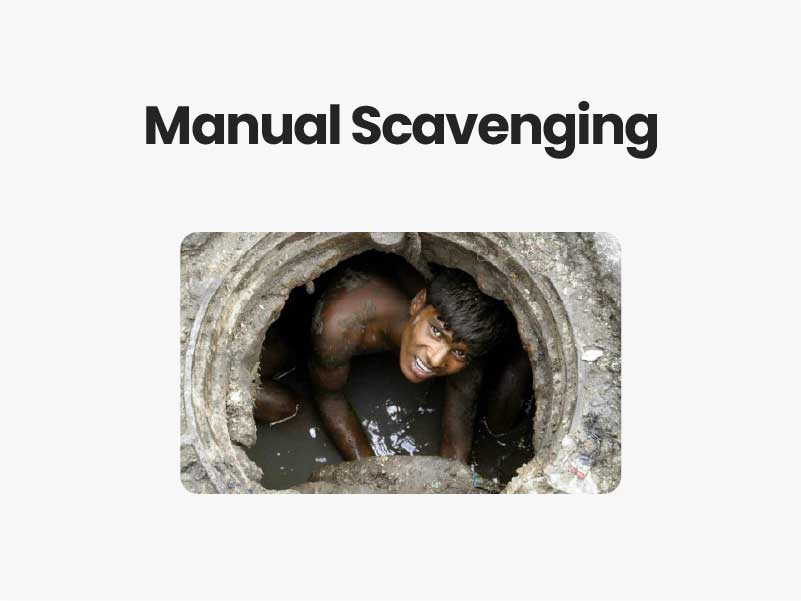Companion@360 → 7 Month programme to sharpen your writing skills → REGISTER NOW

Manual Scavenging – Menace
The practice of manually cleaning excrement from private and public dry toilets and open drains persists in several parts of South Asia. Across much of India, consistent with centuries-old feudal and caste-based custom, women from communities that traditionally worked as “manual scavengers,” still collect human waste on a daily basis, load it into cane baskets or metal troughs, and carry it away on their heads for disposal at the outskirts of the settlement.
- India’s central government since independence in 1947 has adopted legislative and policy efforts to end manual scavenging.
Legal Framework Against Manual Scavenging
- Indian Parliament passed The Prohibition of Employment as Manual Scavengers and Their Rehabilitation Act, 2013 (the 2013 Act), committing itself yet again to ending manual scavenging.
- Seven months later, on March 27, 2014, the Indian Supreme Court held that India’s constitution requires state intervention to end manual scavenging and “rehabilitate” all people engaged in the practice.
- This meant not only ending the practice but also ending the abuses faced by communities engaged in manual scavenging.
Reasons:
- Don’t have adequate tools and protective gear to clean the manhole.
- The practice of scavenging is linked to India’s caste system where so-called lower castes were expected to perform this job.
- Issue Due to Outsourcing
- Indifferent Attitude
Innitiatives:
- India’s Supreme Court has ruled that the practice of scavenging violates international human rights law, including protections found in the Universal Declaration of Human Rights (UDHR), the International Convention on the Elimination of All Forms of Racial Discrimination (ICERD), and the Convention on the Elimination of All Forms of Discrimination against Women (CEDAW). India is also a party to other international conventions that reinforce obligations to end scavenging.
- The machine launched by Sulabh injects high pressure water into the tunnels and tanks and then collects the waste with a mechanical bucket operated from ground level.
Way Forward:
- Difficult to eliminate manual scavenging in a system that operates at the intersection of caste, economic inequality.
- Empowering Local Administration
- Social Sentisitation
- Proper Identification
